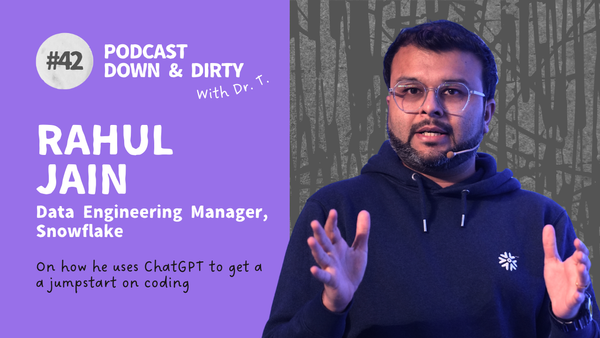🪄What is the significance of informed consent?
Your guide to getting the very basics of user research right.

Written by: Ananya Mavinkurve
“Designing products with real people in mind helps us make sure that technology integrates our lives in a human way. It’s a voice of reason, arguing that products and technology can support and even enrich our fundamental humanity.”
- Leah Buley, Senior Director of Consumer Insights and User Research at Lovevery.
This quote succinctly encapsulates what I’ve come to love the most about user research - it always puts people first in the pursuit of creating meaningful, human-centric experiences.
Research participants create the foundation for thoughtful user research and I firmly believe that the key to conducting effective research is building a relationship based on trust and open dialogue.
The first step towards cultivating that trust is being completely transparent and receiving informed consent from our participants. Consent is a vital cornerstone for any research endeavour, and its importance is not limited to ethical or legal compliance measures.
What is informed consent?
In simple terms, informed consent is the voluntary and explicit agreement provided by a respondent, after receiving clear and comprehensive information about the purpose, procedures, potential risks, and benefits of participating in a study. It’s also crucial to inform participants about how research results will ultimately be used, who they will be shared with, and how much (if any) personal information will be collected and shared with other parties.
The top priority for any researcher worth their salt is respecting participants’ autonomy and protecting their rights at every stage of the study, and informed consent allows you to make sure that you’re doing just that.
Consent comes in many forms; it may be written, verbal, or simply implied, depending on the type of work that you’re trying to do. Regardless of the form it takes, consent is a big step towards ensuring transparency, which ultimately builds credibility and leads to trust among all research stakeholders.
Why does consent matter?
- It ensures that participants are safe and comfortable
Receiving consent from research participants enables them to draw boundaries, ask questions, and express any and all concerns that they may have. This is a crucial process as it can also allow you to identify and mitigate potential risks associated with your study, and design it in such a way that the participant comes first. This creates an environment of honesty and trust, which allows participants to feel completely at ease while participating in your big research project.
- It leads to more honest insights
By telling your participants exactly what is expected of them, guaranteeing anonymity, and guaranteeing that there will be no nasty surprises coming their way all go a long way towards ensuring that you get more accurate and honest responses from them. Creating an atmosphere wherein respondents can be 100% open about their thoughts, feelings, and experiences, not only makes them feel comfortable, it also helps you parse more accurate, higher quality, and richer user data. It’s a win-win!
- It helps you build long-term relationships
Establishing trust and transparency with participants, and creating a fulfilling research experience for them, creates potential for a long-term collaborative relationship. By receiving their consent, you are explicitly prioritising participant comfort. People who feel like they were well taken care of are far more likely to come back and take part in your future research endeavours, empowering you to create a research community of your own.
Here is an example of what a consent script might look like:
While the ethical (and often legal) standards of research that mandate participant consent are reason enough on their own, unearthing richer insights and building a research network are like the cherry on top, bonus perks that you get for doing the right thing, and for doing it the right way. So good luck out there, and remember that consent is key!
Cover Photo by: Sora Shimazaki



